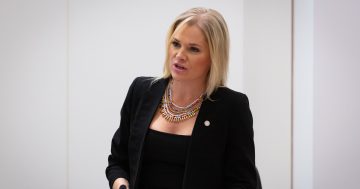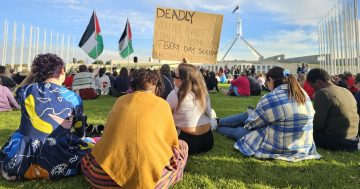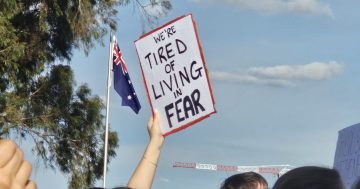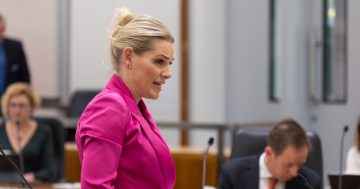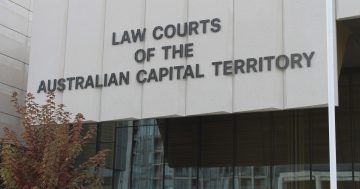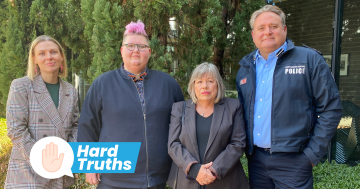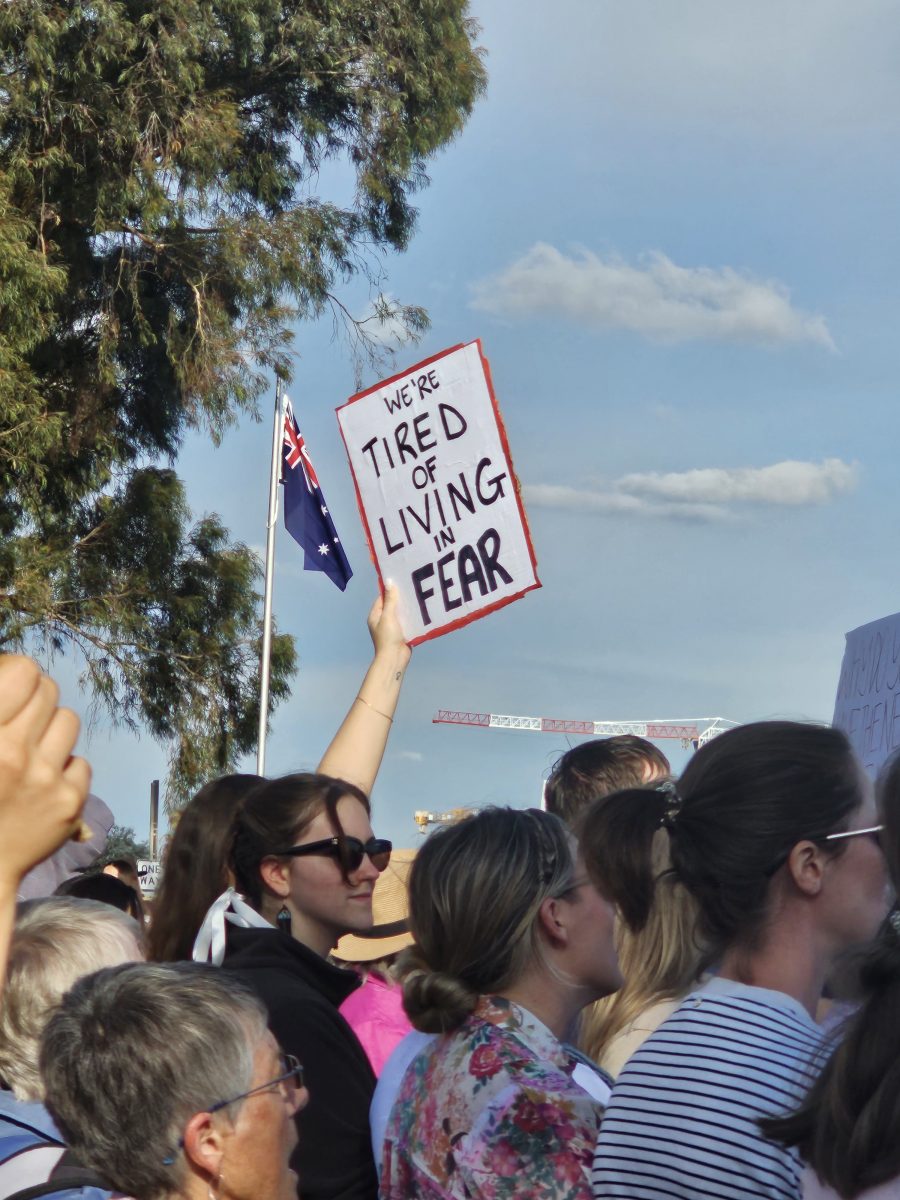
Coercive control is a factor in 99 per cent of intimate partner domestic violence homicides. Photo: Hayley Nicholls.
CONTENT WARNING: This article discusses content that some readers may find distressing.
Laws to make coercive control a standalone criminal offence in the Territory could be a step closer with the Canberra Liberals to introduce legislation at the next sitting week.
The ACT Government provided in-principle support to criminalise coercive control in 2021, but there has been little public-facing legislative action since then.
Shadow Prevention of Domestic and Family Violence Minister Leanne Castley said the time for talk was over.
“We know [from a 2022 study] that in 99 per cent of intimate partner homicides, coercive control plays a massive part, so we want to introduce a bill that makes coercive control a criminal offence,” she said.
“Enough is enough … it’s time to take action.”
The Commonwealth Attorney-General’s office has defined coercive control as an action that involves perpetrators using “patterns of abusive behaviours over time in a way that creates fear and denies liberty and autonomy”.
Signs of coercive control can include isolating a person from their support system, monitoring their activity, gaslighting, limiting access to money, controlling aspects of a person’s health or body, threatening a person’s children or pets and sexual abuse.
“All of these behaviours occur in many Canberrans’ worlds, and we want to make sure that this behaviour isn’t acceptable, and we will not stand for it anymore,” Ms Castley said.
“I just don’t think we can monitor any longer.”
The Canberra Liberals will introduce an education campaign at the same time that they introduce the private member’s bill for the legislation.
Ms Castley said the party understood education was an important aspect of criminalising coercive control but questioned why the ACT Government had been thinking about this matter for so long.
“Listening to those peak bodies … even kids need to understand what this is. I don’t think waiting and doing nothing is getting it off the ground,” she said.
Both NSW and Queensland have criminalised coercive control. NSW’s laws come into effect in July. South Australia is also considering following suit.
When questioned about what the ACT Government had been doing in this space since 2021, Prevention of Domestic and Family Violence Minister Yvette Berry said she had been “listening very carefully” to what local experts had been saying before taking action.
“What I’m hearing from the sector is [that] the education should come first – a clear understanding in our community and frontline responders,” she said.
“The experts have told me they want to see and develop … education and supports around what is coercive control and its impacts on domestic, family and sexual violence. It is a complex issue and we want to make sure we get it right so that when legislation is introduced it doesn’t impact on people negatively.”
Ms Berry said the government also wanted to see how the laws played out in NSW to make sure legislation introduced here was appropriate and didn’t include any aspects which could have negative consequences.
“The ACT Government is not dragging its feet. We are being very careful and considered in our approach to making sure that legislation works in the ACT context, and working closely with the sector and those experts to make sure we get it right,” she said.
“What I’ve been hearing very clearly from the services sector is: make sure you work with us, work with the experts in the sector to fully understand coercive control and what we need the community and frontline responders to understand.”
The Canberra Liberals are expected to release an exposure draft of their proposed legislation by 10 May.
Anyone impacted by sexual, domestic or family violence can contact 1800RESPECT on 1800 737 732 or Full Stop Australia on 1800 385 578.
Local support services include the Canberra Rape Crisis Centre on 6247 2525, the Domestic Violence Crisis Service (DVCS) on 6280 0900, and Victim Support ACT on 1800 822 272 or 6205 2022.
If this reporting has raised mental health concerns for you, call Lifeline on 13 11 14.












